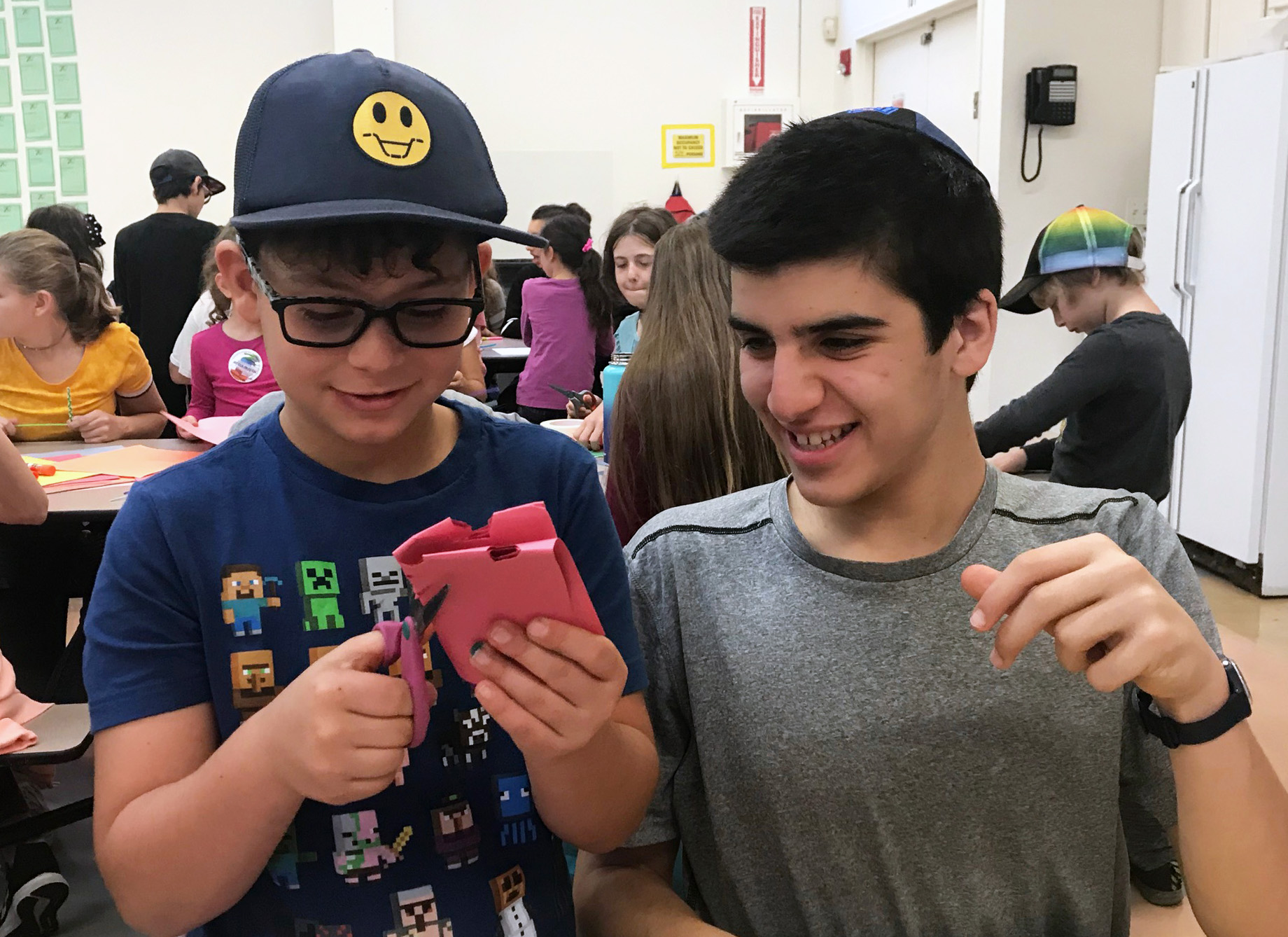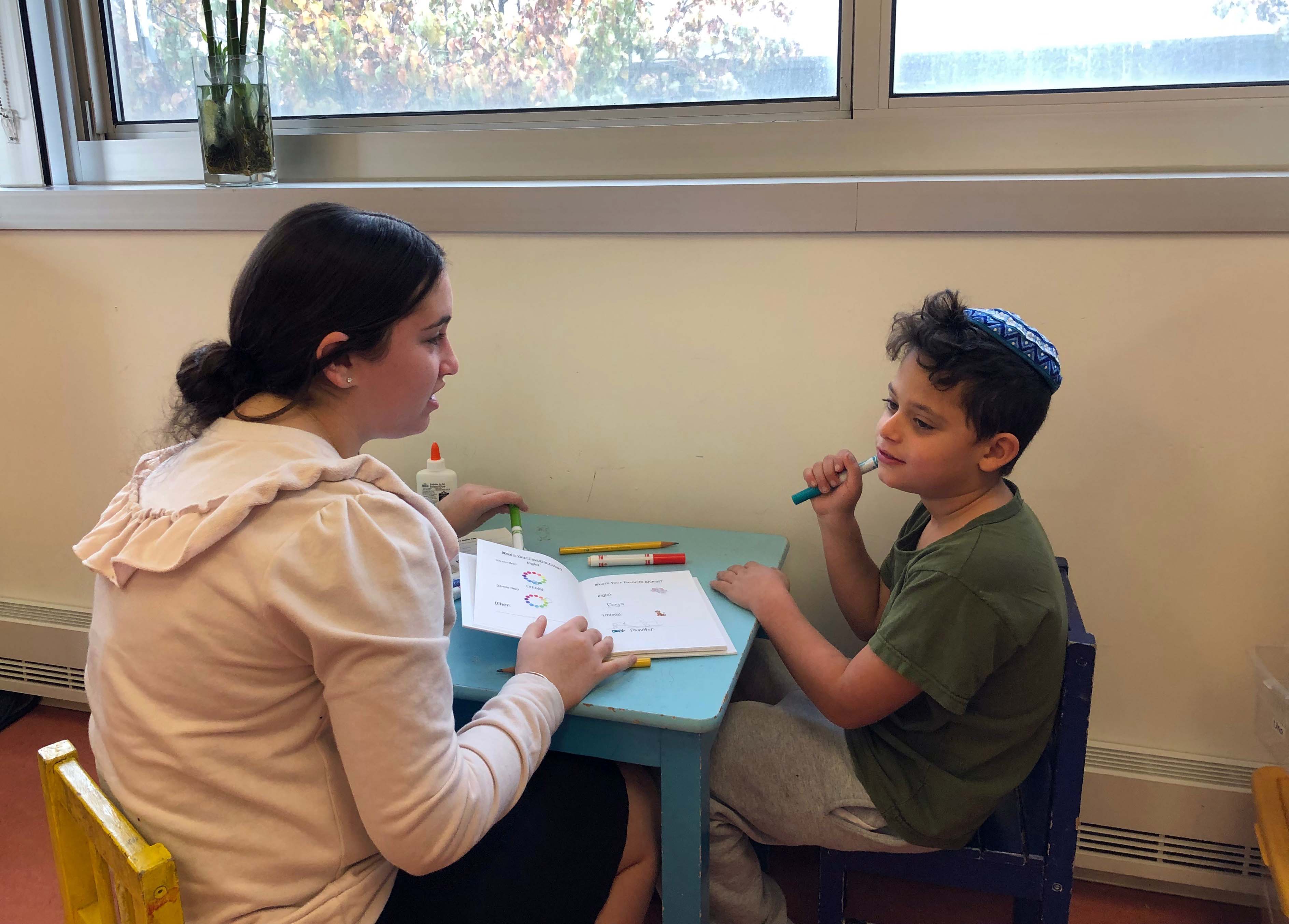The Buddy Program
Please note that during the COVID-19 Pandemic, our buddies are not meeting in person yet but are still connecting by writing letters to each other, for example.
Akiba-Schechter has always been a school that values community. When students are part of a community, they feel part of something larger than themselves. This is a powerful feeling, because it encourages them to think more broadly about how their actions make an impact on others—promoting kindness, compassion, and a commitment to action.

One way we create community at Akiba is through our Buddy Program.
Mimicking our existing inter-age programs like multi-age classes, flexible ability-groupings, and middle school students teaching the preschoolers about various holiday events, we paired our older students with younger “buddies.” Third and 4th graders are each assigned a buddy in Kindergarten; 7th and 8th graders are assigned a buddy in 1st and 2nd grade. This gives older students an opportunity to develop leadership skills, and younger students get to know an older student better.
Students participate in a medley of buddy activities throughout the year. On Rosh Chodesh, for instance (the beginning of the Hebrew month), older buddies pick up their younger charges from their classrooms and eat breakfast with them. Before Chanukah, they make latkes and decorate the halls together. In the spring, they listen to their young buddies practice Hebrew reading. They even go roller skating together on Shushan Purim (the day after Purim). In return, the younger buddies make special good bye gifts for the 8th graders when they leave for their trip to Israel.

When we began the buddy program several years ago, we knew it would be reassuring for 1st graders to hold an older buddy’s hand entering Loeb Hall on the first Rosh Chodesh of the year, when more than 100 children have breakfast together. We were pleasantly surprised how beneficial being a younger child's buddy was for our 7th/8th graders. Before we initiated the Buddy Program, our upperclassmen tended to sit among themselves during Rosh Chodesh breakfasts. What 13-year-old wouldn’t? As older buddies, however, they became leaders for a younger cohort. In fact, when assigned their buddies for the year—a much-awaited and exciting moment—these older students ask all sorts of questions: “What will I say?” - “How can I make a 1st grader feel comfortable?” - “What if my buddy cries?” In essence, they’re thinking like adults. After every “buddy” events, not only do our 1st and 2nd graders look with adoring eyes at their older friends, but our 7th/8th graders also stand a little taller.
Perhaps the best part of the Buddy Program is that top-down scheduled events have encouraged bottom-up, organic relationships between older and younger students, so that the fabric of our school—indeed, our community—is authentic, sustainable, and strong.
